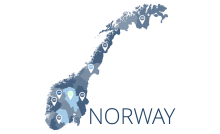What are books for translators?
Books for translators provide valuable information, guidance, and knowledge for professionals in translation. These books cover various topics, from translation theory and techniques to specialized guides for different industries and languages.
One of the main purposes of books for translators is to enhance their understanding of the translation process and equip them with the necessary tools and skills to produce high-quality translations. These books delve into various aspects of translation, including linguistic analysis, cultural adaptation, and stylistic considerations.
Moreover, books for translators also serve as invaluable resources for specialized knowledge. They offer insights into specific industries such as legal, medical, technical, and literary translation, providing translators with the expertise and terminology to tackle complex subject matters effectively.
Language-specific guides are another category of books that are immensely helpful for translators. These guides focus on the nuances and peculiarities of different languages, equipping translators with the knowledge and understanding necessary to convey the intended meaning in the target language accurately.
In addition to technical aspects, books for translators also offer valuable advice on the business side of translation. They provide insights into marketing strategies, client management, and pricing models, helping translators establish successful and sustainable careers.
Overall, books for translators play a crucial role in the professional development of translators, serving as valuable resources to improve skills, expand knowledge, and navigate the complexities of the translation industry.







